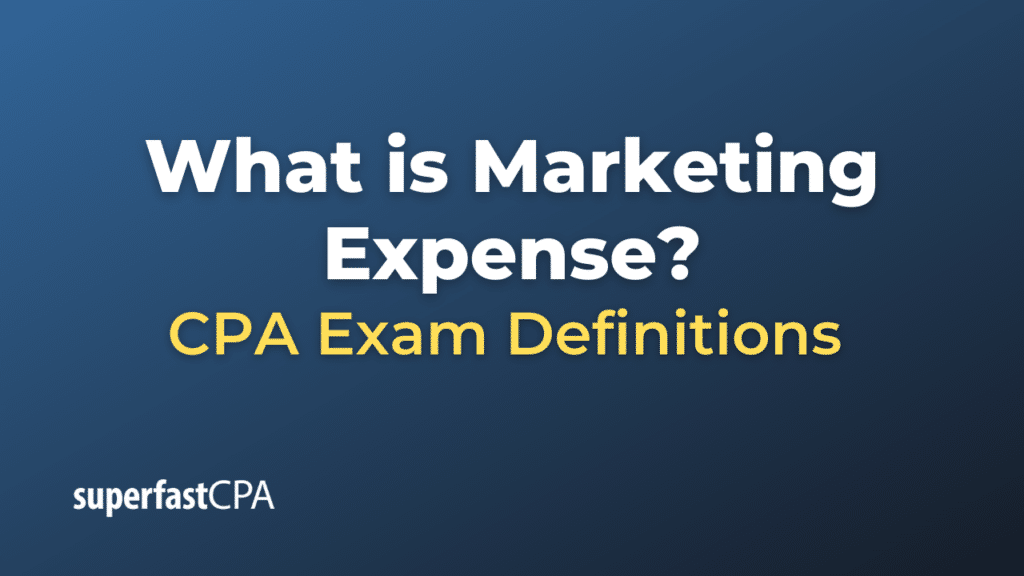Marketing Expense
Marketing expenses are costs associated with promoting products or services. These costs are part of a company’s overall operating expenses and are crucial for attracting customers, building brand awareness, and ultimately generating sales.
Marketing expenses can cover a wide range of activities, including:
- Advertising: This includes costs related to print ads, online ads, billboards, TV and radio commercials, direct mailings, and other forms of paid promotional activities.
- Public Relations: This encompasses costs for press releases, media events, and other activities intended to maintain or improve the company’s image.
- Promotional Materials: These include the costs of producing brochures, posters, product samples, and other materials used to promote a product or service.
- Digital Marketing: This includes expenses associated with maintaining a website, email marketing, search engine optimization (SEO), and social media marketing.
- Events and Sponsorships: Hosting or participating in trade shows, conferences, webinars, and sponsoring local or industry events.
- Sales Force Costs: If the sales force is considered part of the marketing team, then the costs associated with compensating, training, and supporting sales personnel would also be considered marketing expenses.
- Market Research: This includes costs related to collecting and analyzing data about target market segments, competitors, and market trends.
It’s important to note that marketing expenses can vary greatly depending on the size of the company, the industry in which it operates, its target audience, and its marketing strategy. For instance, a small online business may invest heavily in digital marketing, while a large consumer goods company might allocate a significant portion of its budget to TV advertising.
These costs are typically considered in planning a company’s marketing budget, which is often set as a percentage of sales revenue, though the actual percentage can differ widely depending on the industry and the company’s strategic goals.
Example of Marketing Expense
let’s consider a hypothetical example of a startup company, let’s call it “XYZ Tech,” that has developed a new fitness tracking app.
XYZ Tech is planning their marketing strategy for the upcoming fiscal year. They identify the following potential marketing expenses:
- Advertising: XYZ Tech plans to spend $50,000 on Google Ads and $25,000 on social media advertising through platforms like Facebook and Instagram.
- Public Relations: The company allocates $15,000 to hire a PR agency to help secure media coverage and build relationships with influencers in the fitness and technology sectors.
- Promotional Materials: XYZ Tech budgets $10,000 for promotional materials. This includes branded merchandise like t-shirts and water bottles, as well as brochures and signage for events.
- Digital Marketing: The company plans to spend $30,000 on a new website and $20,000 on an email marketing campaign. They also plan to hire a part-time SEO specialist to improve their search engine rankings, at a cost of $25,000.
- Events and Sponsorships: XYZ Tech plans to exhibit at several major fitness and technology trade shows throughout the year, which they estimate will cost about $40,000.
- Sales Force Costs: The company has three sales team members, whose combined salaries, benefits, and expense accounts amount to $150,000.
- Market Research: XYZ Tech sets aside $10,000 to conduct surveys and focus groups to understand their customers’ needs and perceptions better.
Adding all these expenses together, XYZ Tech is planning a total marketing budget of $375,000 for the upcoming fiscal year. These expenses are all designed to help XYZ Tech increase brand awareness, attract new users to their fitness tracking app, and ultimately grow their business.













